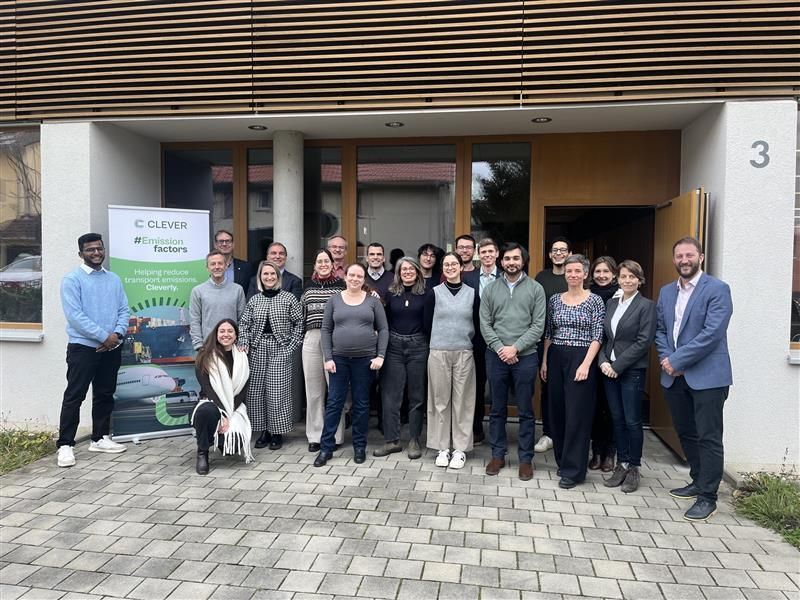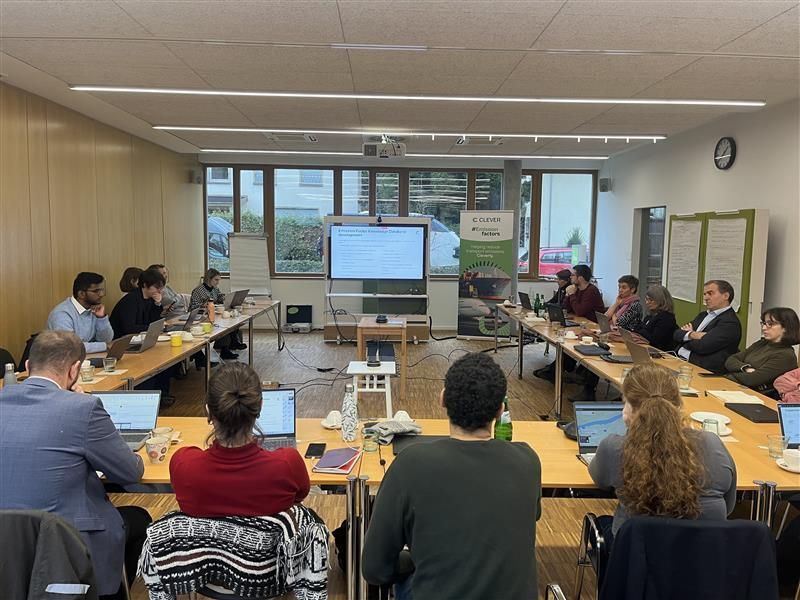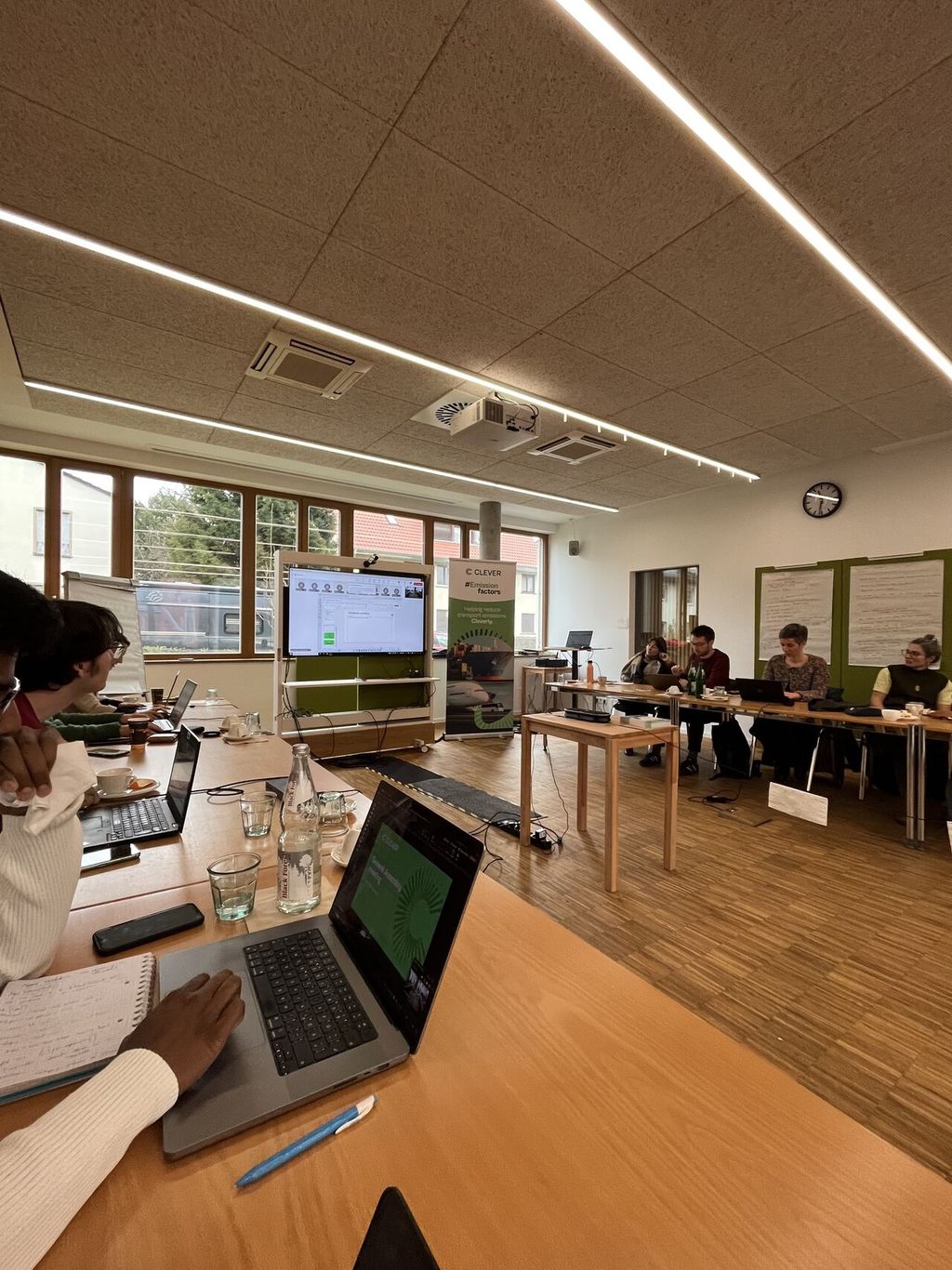
The road to a greener mobility: insights from the CLEVER project
As we navigate towards a more sustainable future, the transport sector remains one of the biggest roadblocks. Responsible for a large share of greenhouse gas (GHG) emissions in the European Union and despite ambitious commitments to achieve net-zero carbon emissions, change has been slow. While initiatives such as the deployment of electric vehicles and policies like the EU Emissions Trading System Directive under the ‘Fit for 55’ legislative package, along with the CountEmissions EU initiative, aim to tackle these challenges, progress has been slower than expected, with emissions levels remaining relatively stagnant since 2005 (European Environment Agency).
To truly transform the EU’s mobility systems in a sustainable way, it’s clear that more is needed – specifically, clear, reliable GHG emission factors that can effectively reduce emissions. This is where CLEVER, a EU-funded project, steps in. The project addresses the urgent need for harmonised methodologies to measure, track, and reduce transport emissions.
The harmonisation of emission factors across transport modes
Launched in June 2024, CLEVER focuses on developing one unified methodology for calculating GHG emissions across various transport modes, both freight and passenger, as well as different fuel types, including both new and conventional. The project’s well-to-wheel approach spans the entire energy lifecycle, from production to end use. By doing so, CLEVER ensures that reporting is not only accurate but also consistent, enabling better decision-making and ensuring regulatory compliance.
By standardising emission factors, CLEVER is making it easier for the transport sector to adopt more reliable and transparent tools to support decarbonisation efforts. This is crucial in helping stakeholders accurately measure emissions and align with Europe’s sustainability targets.
Discover the project through the video below!
Project partners meet in Germany
On 10-11 December 2024, the project partners gathered in Heidelberg, Germany, for their first General Assembly. The air was buzzing with energy and determination as participants delved into the project’s progress and set their sights on the road ahead for 2025 in the shared mission of revolutionising emission tracking.
In the first 6 months of the project, CLEVER partners did a first comprehensive review of the current emission factor landscape. This included assessment of databases, life cycle assessment (LCA) tools, regulations, standards, and relevant scientific literature. The review identified a number of gaps, including significant methodological inconsistencies, limited data on fuel specifications, and a lack of tools for calculating emissions from fuel blends.
To complement this analysis, CLEVER also carried out a stakeholder survey, receiving over 160 responses from participants across the transport and logistics value chain. The survey confirmed the pressing need for harmonised GHG emission factors and stressed the importance of detailed, fuel-specific information and improved tools for fuel blend calculations. These insights are helping CLEVER refine its emission factors to better align with industry needs and promote sustainable practices.
CLEVER’s success lies in its collaborative, multi-stakeholder approach, which brings together diverse voices from across the transport sector. The project’s Emissions Calculation and Accounting Expert Forum plays a central role in this effort. With UITP playing an active role, this 40-member group brings together transport operators, NGOs, policymakers, and industry leaders. By actively engaging participants throughout the design, creation, and assessment phases, CLEVER ensures that the methodology is not only rigorous but also universally applicable.
On 14 January 2025, the forum hosted its first webinar, ‘Emission Factors knowledge base and gap analysis’, a feedback session that brought together experts and stakeholders to discuss ways to improve emission factor methodologies and further the goal of sustainable transport. Looking ahead, the next in-person meeting in Amsterdam will offer participants the chance to continue these important discussions and build stronger connections.
As part of its ongoing work, CLEVER recently launched its Repository, a digital knowledge base of scientific publications, regulatory frameworks, and relevant initiatives. Designed to support the transport sector, this platform offers valuable resources to accelerate decarbonisation efforts and informed decision-making. Want to see what’s inside? Register for access to the CLEVER Repository here.
So, what’s next?
CLEVER’s work is relevant for policymakers and businesses working to meet stringent environmental regulations and achieve sustainability targets. CLEVER invites policymakers, businesses, and stakeholders to join its growing community – whether by participating in the Expert Forum, exploring the Repository, or subscribing to the newsletter, there are plenty of ways to contribute to and benefit from this project!
Stay tuned by following CLEVER on LinkedIn to keep up to date with all the latest developments!
Membership benefits











